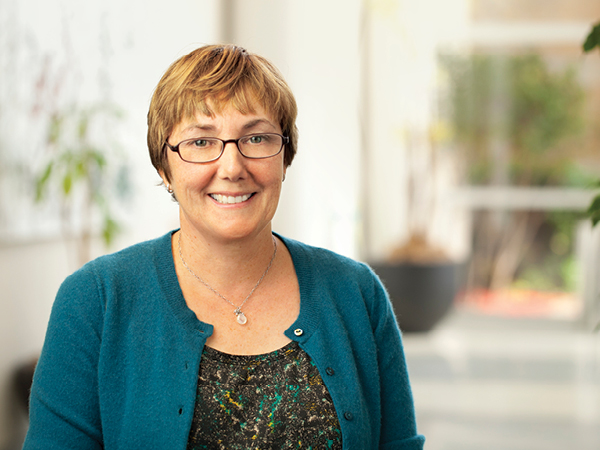
Investing in like-minded researchers, growing a research program
As Elena O. Siegel’s postdoctoral work wound down, she found herself at a career crossroads. She passionately focused her research on improving the capacity of management teams in long-term care facilities. But practically speaking, this research focus was still in the earliest of phases and, with that, funding opportunities were limited.
“I had received very generous foundation support to develop this research focus through pre-doctoral and post-doctoral awards from The John A. Hartford Foundation Building Academic Geriatric Nursing Capacity initiative and Atlantic Philanthropies, which showed they saw this work as worthy of their investment,” says Siegel, an associate professor and former Claire M. Fagin Postdoctoral Fellow. “I felt out on a limb with no low-hanging fruit for funding. The foundation support I received provided me with the opportunity to stay focused and move the work forward.”
Siegel investigates critical skill sets and employer- and policy-level support needed by nursing home management teams to improve quality of care. Joining the founding faculty team at the Betty Irene Moore School of Nursing at UC Davis enabled her to stay on that limb and keep the investment alive.
“Foundations are partners who have innovative ideas that they are willing to fund before research is ready for prime time at a federal level,” says Heather M. Young, founding dean. “They force you to innovate with outcomes that demonstrate impact. That’s who we are as a school. We are committed to making a difference in our communities and using science to do that.”
Sustained foundation support — along with encouragement from Young to forge ahead — undergirds many faculty at the School of Nursing. Pilot funding enables them to frame an idea and articulate what the issues are.
School of Nursing Associate Professor Janice Bell says when a foundation’s mission is a match with your own, a wonderful relationship ensues.
“Foundations care about the mission, both inside their foundations and outside with other groups invested in the same outcomes,” Bell says. “It goes beyond making grants. They seek to create new connections and leverage other foundations to support your work as well.”
Bell recently received $600,000 from the Rita and Alex Hillman Foundation Innovations in Care Program for their collaboration with faith-based organizations in Alameda County that address advanced illness care. That investment, along with support from the Kaiser Permanente Community Benefit program, then led to pending applications for related funding and other outreach opportunities.
“Those relationships are important,” Bell says. “I feel fortunate that we have a dean who not only helps us identify potential foundation partners, but also builds relationships with those funders with face-to-face meetings.”
One funder that Young has built a rapport with over the years is the Mayday Fund, dedicated to alleviating the incidence, degree and consequence of human physical pain. Mayday initially funded the UC Davis Interprofessional Pain Management Competency Program to identify core competencies in pain management for prelicensure clinical education.
“We’re always trying to identify those catalytic leaders who are willing to take a chance and pursue the importance of treating pain. Relationships play a critical role. We cannot live on email alone. We must show trustees or board members the value of what and who they’ve chosen to support,” says Christina Spellman, the fund’s executive director.
“While Mayday is a relatively small fund, its leaders are incredibly dedicated to relieve pain and suffering,” Young adds. “Christina opened doors for us to other foundations to augment what Mayday offered. It demonstrated a real spirit of collaboration with other funders on behalf of a problem she wants to solve.”
Contributions and impact to research, education, practice and policy can be difficult to measure. Yet the School of Nursing continues to build a portfolio of research that demonstrates new ways to address complex health care and health systems issues. That innovation is attractive to foundations who share the same goals.
“It’s not just about me and my work. It’s about keeping the investment alive, so we can move the needle,” Siegel says. “Because our dean and our school support it, foundation support naturally follows.”

